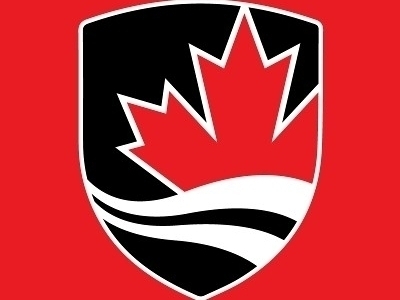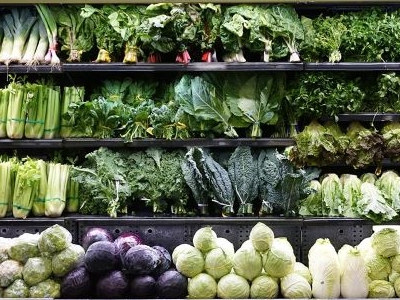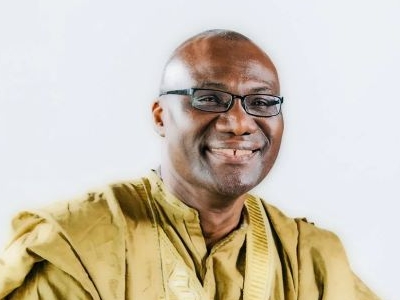*with files from Suzanne Bowness
James Milner organized a workshop called “Power and Influence in the Global Refugee Regime”
The unfolding refugee crisis in Europe serves as a tragic reminder of the urgent need for more applied research on global refugee issues.
“Our hope is that the work of current and future graduate students working in this area will have real impact in guiding solutions for large and complex refugee situations,” says James Milner, an associate professor of political science. “While the scale of the crisis in Hungary, Greece and Turkey seems unimaginable, lessons from other cases tell us that now is the time to be thinking about how our individual contributions can lead to a more comprehensive and collaborative solution. Work on these issues is never abstract. It is real. And we believe that research can help find solutions to the refugee crises of today, and tomorrow.”
Ugur Yildiz, a PhD candidate in Political Science, is researching the journey of people from non-European countries who are seeking asylum in Turkey with the intention to resettle in Canada.
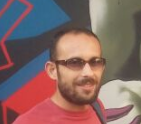
Ugur Yildiz
Yildiz explains that, while Turkey is a signatory to the 1951 Geneva Convention and its 1967 Protocol, it maintains the Convention’s ‘geographical limitation’. “This means that only Europeans can be considered as refugees. Non-European refugees are granted conditional refugee status with temporary protection.”
Continues Yildiz: “So the geographical limitation creates a pattern of non-European asylum seekers in Turkey who have the intention or hope to be resettled into Canada, the USA or Australia.”
Yildiz is conducting semi-structured interviews with refugees both in Turkey and Canada. Right now, he is in Istanbul for his fieldwork, returning in mid-September to Ottawa.
In 2012, Katie Durvin worked as a program assistant for the World University Service of Canada (WUSC) in Dzaleka refugee camp in Malawi. She conducted pre-departure training for refugee youths who were sponsored to emigrate to Canada to pursue post-secondary education and gain permanent residency in Canada.
“The lack of sexual and reproductive health care in the camp deepened my interest in women’s health issues, motivating me to write an undergraduate research paper on emergency obstetric care,” shares Durvin.
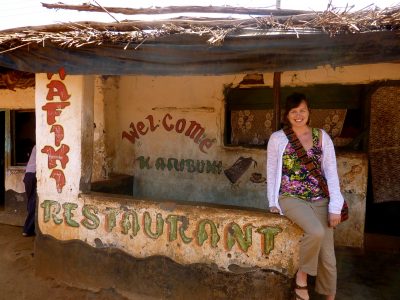
Durvin on site at the Dzaleka refugee camp in Malawi
Now pursing her MA in International Affairs at Carleton, Durvin is researching sexual and reproductive health and rights in crisis situations, focusing on internally displaced persons (IDPs) and refugees. (IDPs are people who have been forced to flee their homes but remain within the border of their own country.)
She is examining how an international standard of care for sexual and reproductive health in emergencies was implemented differently in four major crises: the Sudanese refugee crisis in Chad (2004), the Indonesian tsunami (2004-2005), the Haitian earthquake (2010), and the Syrian refugee crisis in Jordan (2011-2013).
Says Durvin. “For women living in these kind of emergencies, they often face additional challenges seeking and receiving care.”
Durvin continues that it is essential to gain a greater understanding of the factors that affected the global response in previous emergencies in order to inform a better response to future crises.
“With these lessons learned, we can hopefully move forward in a more coordinated and effective way,” she says.
Prof. Milner, who is Durvin’s supervisor, says that Carleton is becoming an important national and international hub for students like Durvin who are doing research on refugees and migration. As such, he organized a workshop (Sept. 23-25/15) on the Power and Influence in the Global Refugee Regime.
The event brought together a world-class group of scholars and practitioners to Carleton to discuss the state of the global refugee regime and how various actors influence its work. The final session focused on developing a future research agenda to explore the questions raised by the workshop.
Milner hopes that this workshop will lead to a new Global Refugee Policy network that will allow for further long-term dialogue amongst scholars and practitioners.
At the same time, he anticipates that the workshop will build on an MOU that was recently signed between CARE, York and Carleton, through which graduate students can conduct research with CARE field operations working with refugees around the world.
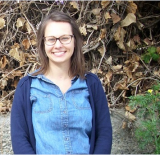
Wojnarowicz in Gioiosa
Milner hired graduate student Krystyna Wojnarowicz to do social media outreach for the workshop (@GRPNetwork). Wojnarowicz is a second-year Master’s student in Political Science who is finishing her thesis and working with the UN Refugee Agency as a resettlement intern.
Wojnarowicz recently returned from field-work in Gioiosa-Ionica in Italy where she carried out research examining the town’s role in a project that hosts refugees coming from places like Pakistan, Afghanistan, and Gambia. She observed that asylum-seekers and refugees exercise a lot of agency in the spaces that they are confined to, often through protests speaking out about long wait times for refugee status determination and their lack of mobility rights. She is under the supervision of Dr. Martin Geiger who strongly encouraged her to carry out her own primary research.
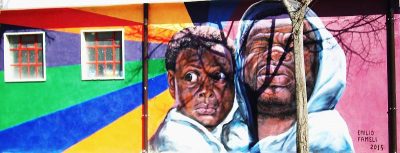
Graphic art mural in Gioiosa, Italy
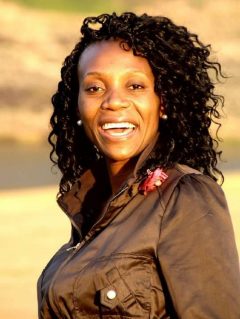
Andriata Chironda
Andriata Chironda is a PhD History student, as well as working as a policy analyst with the Department of Citizenship and Immigration Canada. Her research is focusing on the history of international migration and refugee protection policy since the end of the Second World War. She is particularly looking at African refugees.
“Government policies and programs affect and define people’s lives and my goal is to contribute towards producing knowledge which puts “people” at the center of policymaking,” shares Chironda. “I am preoccupied with the plight refugees, who are often “unseen”, vulnerable and marginalized members of the human family.”
She is hoping to develop a better understanding of how ordinary human beings, in extraordinary circumstances of physical and emotional displacement, navigate policy discourses as they seek to gain protection from the United Nations High Commission for Refugees; within countries of asylum or; when trying to access other solutions such as resettlement to a third Western country.
Chironda plans to conduct her field research in Central and Southern Africa.
Milner says he hopes that the September workshop will help graduate students take a more coordinated approach looking at similar questions but in different countries. “If all of these graduate students are doing their work according to a similar methodology, then, we can more easily compare the results of what they’re finding,” points out Milner. “Then, with the support of additional funding, we could bring this global community of graduate students together from time to time so they can share their results.”
Meanwhile, he continues to do his own research on the role global refugee policy plays in resolving protracted refugee situations. “The average refugee now spends close to 20 years in exile,” explains Milner. “While we invest considerable resources in the making of global refugee policy, we need to do more to understand what impact these policies actually have in the lives of refugees and how global policy can do a better job of ensuring the protection of refugees and finding a solution to their plight.”
Click here to read an additional story about Carleton’s refugee researchers and the upcoming workshop.
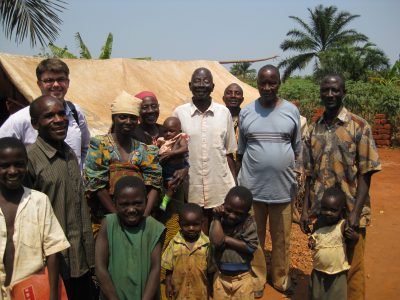
Milner meets with refugees recently repatriated to Burundi from Tanzania to discuss rebuilding their lives after 40 years of exile.
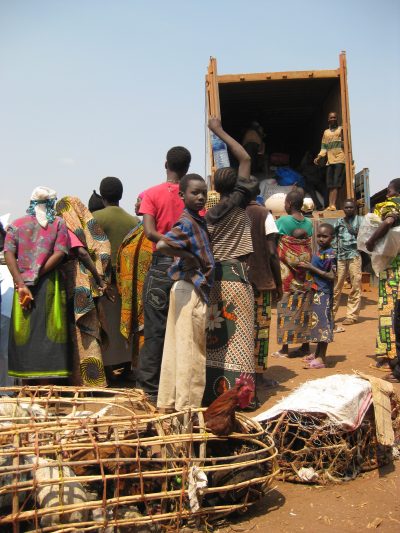
Refugees repatriate to Burundi after 40 years of exile in Tanzania. For many children, it is the first time in their “home” country.
Friday, August 28, 2015 in Grad Student Research
Share: Twitter, Facebook
